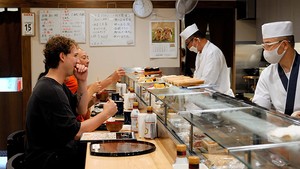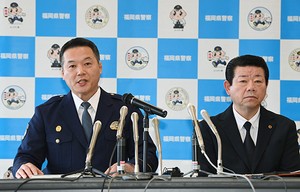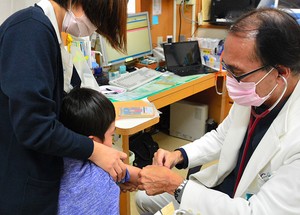By AMANE SHIMAZAKI/ Staff Writer
December 24, 2024 at 17:39 JST
Rather than take it easy, a newspaper reporter who previously devoted his life to covering criminal cases chose to throw himself into an entirely new career once he retired.
Kenji Ogata details this new life in his book “Jiken-kisha Hoikushi ni Naru” (a crime reporter becomes a nursery school teacher). It was released on Dec. 23 by CCC Media House Co.
The book is full of humor and recounts his days studying alongside teenage students after entering a junior college when he was 63.
Now 66, Ogata began his journey in the department of childcare at Higashi Chikushi Junior College in Kita-Kyushu in April 2022 and graduated this spring.
As he struggled with playing the piano and sewing for the first time, Ogata also learned the fundamentals of child development.
But why do all this in the first place?
Ogata joined The Mainichi Shimbun in 1982 and moved to The Asahi Shimbun in 1988.
During his 39 years of crime reporting, there was no end to the kidnappings, murders and abuse of small children.
Why should innocent children be subjected to such unreasonable treatment?
“We can settle the score for the victim through investigation, but we cannot do anything about the upbringing of the child,” a police officer once said.
The officer was part of an investigation into an abuse case where a child died.
This remark stayed with Ogata.
So much, that he pondered what he should do to protect children.
After retiring from the newspaper company in 2021, there was an affecting moment while he was reading through a large volume of his interview notes.
It was as though he could hear the voices of the children.
“Is it OK to just review the interviews that you did? How much do you know about us?”
Ogata decided to enroll in the child care department of a junior college, thinking that there were things he could do, but only if he gained specialized knowledge and actually communicated with children.
However, he was faced with more “obstacles” than he had imagined.
What he had to tackle in class were things he had no experience with at all, the piano and origami among them.
He sought advice from other students and faculty members on how to tackle the assignments.
Ogata also learned why nursery school teachers acquire so many skills in different kinds of "play"—it is important for children's health, relationships, environment and expression.
His book, meanwhile, is the result of a newspaper article about his life at Higashi Chikushi catching the attention of an editor.
In it, he describes various vignettes from his days as a reporter to his graduation from the junior college.
Also included is his journey of learning to play the piano when he could not even read sheet music. Ogata purchased an electric piano and practiced intensely. By the time he graduated, he had worked on 64 assigned pieces.
It was the children who taught him the most important thing. While doing classroom training, a child walked up to him and asked, “You are here to study to make us happy, aren’t you?”
This reminded him of what adults should do for children.
Ogata is currently giving lectures on topics such as abuse and crime reporting. He is also considering running or establishing a child care facility.
“I think society’s efforts to protect children are still insufficient,” he said. “I’d like to think about how to apply the knowledge I have acquired for the best interest of children.”




















Here is a collection of first-hand accounts by “hibakusha” atomic bomb survivors.
A peek through the music industry’s curtain at the producers who harnessed social media to help their idols go global.
Cooking experts, chefs and others involved in the field of food introduce their special recipes intertwined with their paths in life.
A series based on diplomatic documents declassified by Japan’s Foreign Ministry
A series about Japanese-Americans and their memories of World War II